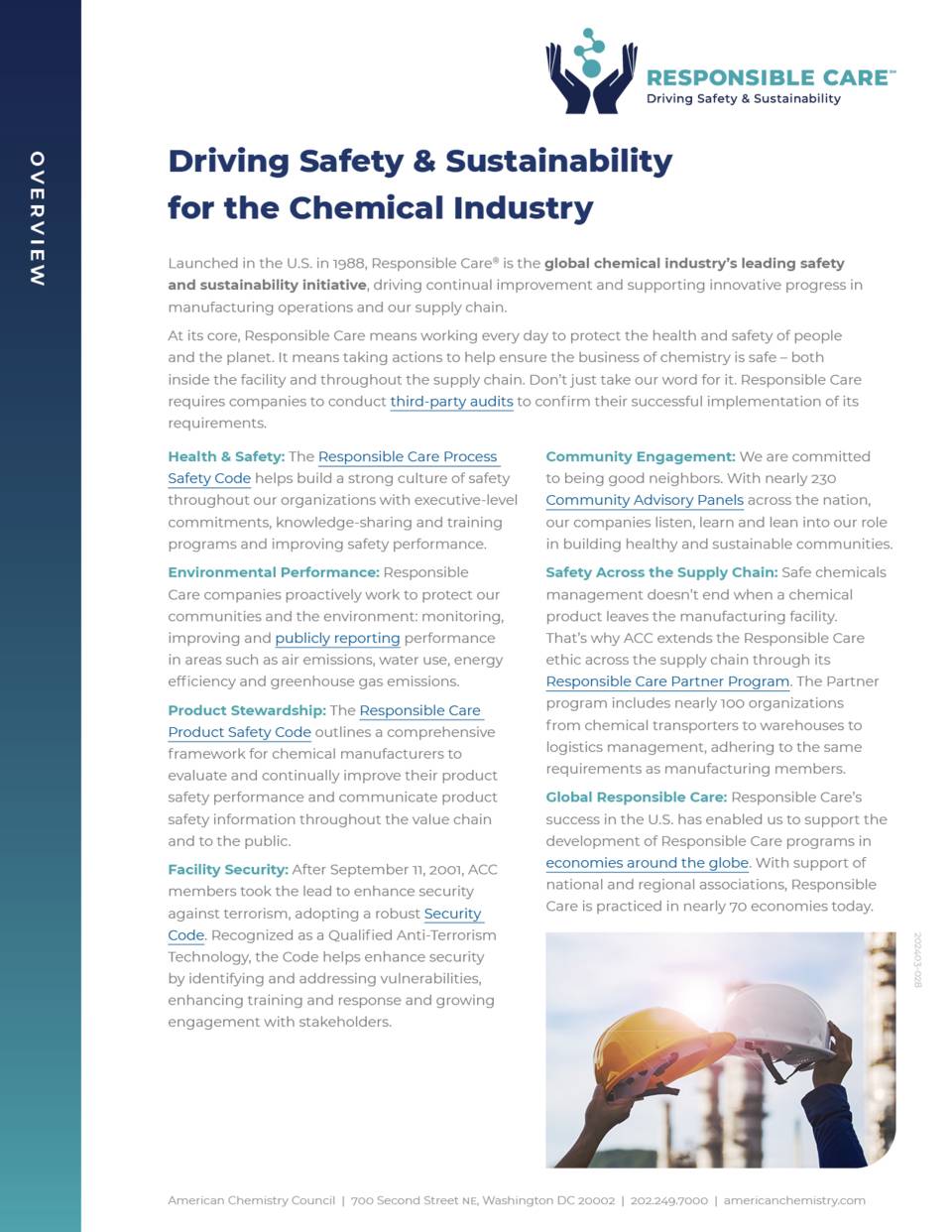For 35 years, companies practicing Responsible Care® have worked to significantly enhance their environmental, health, safety and security (EHS&S) performance.
Responsible Care®: Driving Safety & Industry Performance

The members of the American Chemistry Council (ACC) are committed to safety and sustainability in the communities where we operate and in the products we manufacture. Through implementation of Responsible Care, our members demonstrate their commitment the health and safety of their employees, the communities in which they operate and the environment as a whole.
Participation in Responsible Care is a mandatory for all ACC members and Responsible Care Partner companies, all of which have made CEO-level commitments to the program, including:
- Signing the Responsible Care Guiding Principles
- Tracking and transparently reporting company performance on environmental, health, safety and security metrics
- Certifying Responsible Care Management System (RCMS®)/RC14001®
- Undergoing third-party audit
- Implementing the Product Safety, Process Safety and Security Codes
Responsible Care Guiding Principles
- To lead our companies in ethical ways that increasingly benefit society, the economy and the environment.
- To design and develop products that can be manufactured, transported, used and disposed of or recycled safely.
- To work with customers, carriers, suppliers, distributors and contractors to foster the safe and secure use, transport and disposal of chemicals and provide hazard and risk information that can be accessed and applied in their operations and products.
- To design and operate our facilities in a safe, secure and environmentally sound manner.
- To instill a culture throughout all levels of our organizations to continually identify, reduce and manage process safety risks.
- To promote pollution prevention, minimization of waste and conservation of energy and other critical resources at every stage of the life cycle of our products.
- To cooperate with governments at all levels and organizations in the development of effective and efficient safety, health, environmental and security laws, regulations and standards.
- To support education and research on the health, safety, environmental effects and security of our products and processes.
- To communicate product, service and process risks to our stakeholders and listen to and consider their perspectives.
- To make continual progress towards our goal of no accidents, injuries or harm to human health and the environment from our products and operations and openly report our health, safety, environmental and security performance.
- To seek continual improvement in our integrated Responsible Care Management System to address environmental, health, safety and security performance.
- To promote Responsible Care by encouraging and assisting others to adhere to these Guiding Principles.
